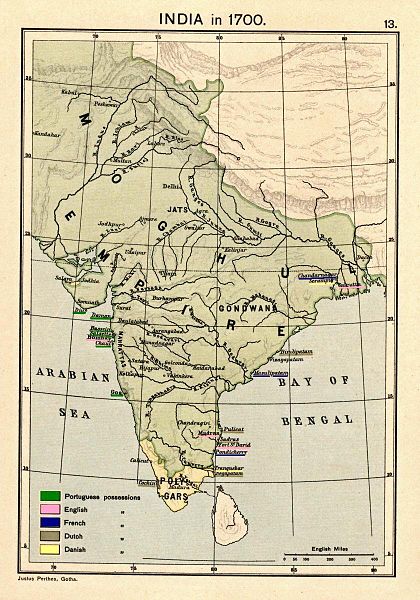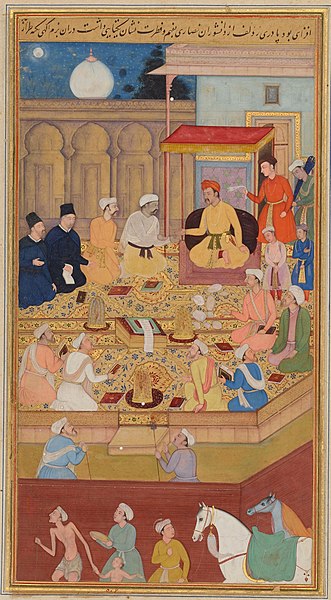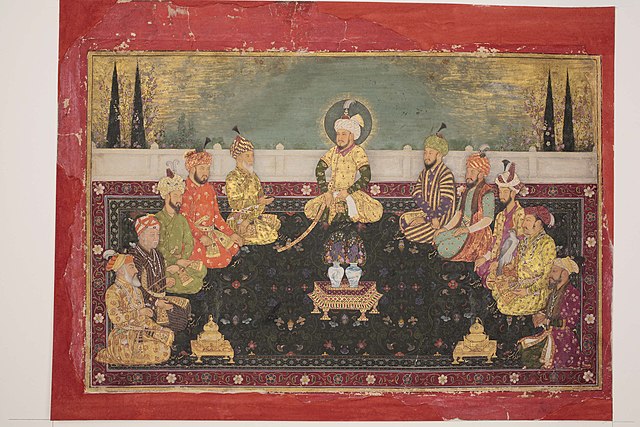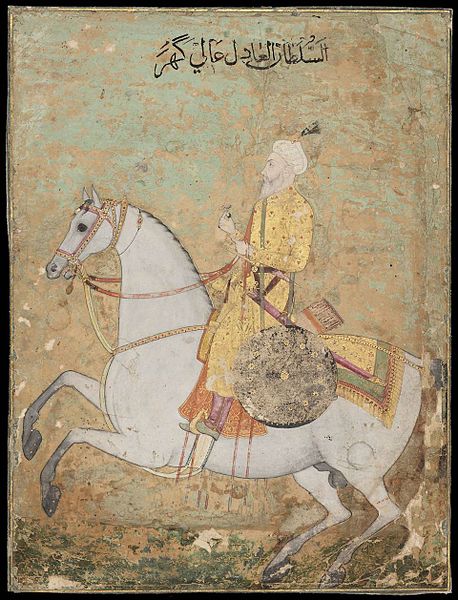Muhammad Bairam Khan, commonly known as Bairam Khan or Bayram Khan was an important military commander, and later commander-in-chief of the Mughal army, a powerful statesman and regent at the court of the Mughal Emperors, Humayun and Akbar. He was also the guardian, chief mentor, adviser, teacher and the most trusted ally of Akbar. Akbar honoured him as Khan-i-Khanan, which means "King of Kings". Bairam was originally called Bairam "Beg", but later became honoured as Khan. Bairam Khan was an aggressive general who was determined to restore Mughal authority in India.
Portrait of Bairam Khan, c. 1710–1740.
Bairam Khan is assassinated by an Afghan at Patan, 1561, Akbarnama
The Mughal Empire was an early modern Indo-Muslim empire in South Asia. At its peak, the empire stretched from the outer fringes of the Indus River Basin in the west, northern Afghanistan in the northwest, and Kashmir in the north, to the highlands of present-day Assam and Bangladesh in the east, and the uplands of the Deccan Plateau in South India.
The empire at its greatest extent in c. 1700 under Aurangzeb
Akbar holds a religious assembly of different faiths in the Ibadat Khana in Fatehpur Sikri.
Group portrait of Mughal rulers, from Babur to Aurangzeb, with the Mughal ancestor Timur seated in the middle. On the left: Shah Jahan, Akbar and Babur, with Abu Sa'id of Samarkand and Timur's son, Miran Shah. On the right: Aurangzeb, Jahangir and Humayun, and two of Timur's other offspring Umar Shaykh and Muhammad Sultan. Created c. 1707–12
Shah Alam II on horseback






